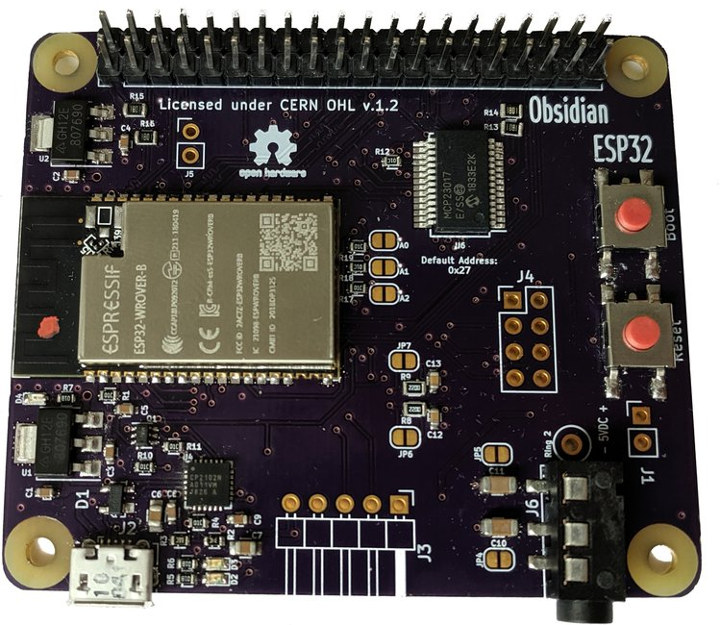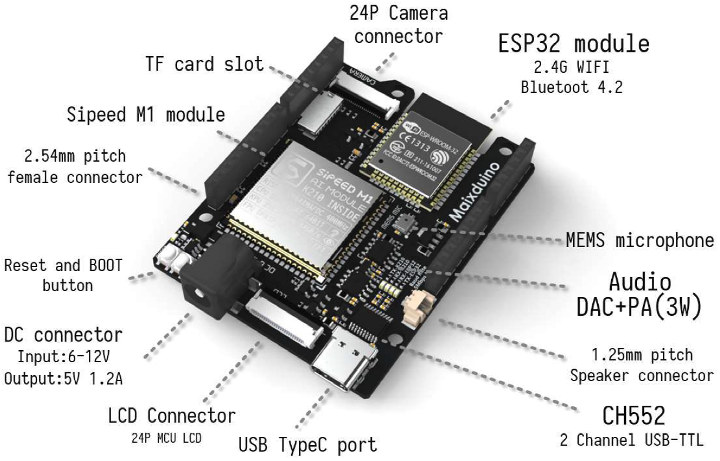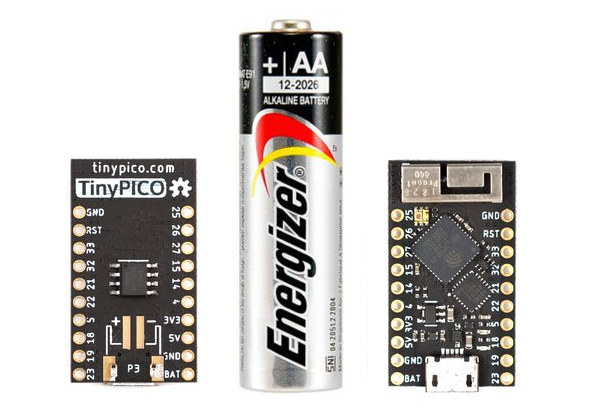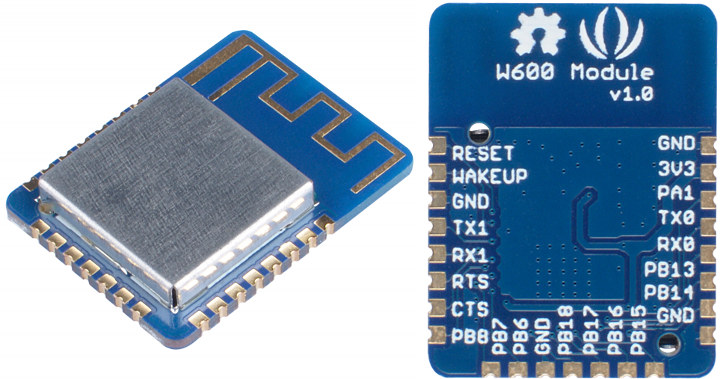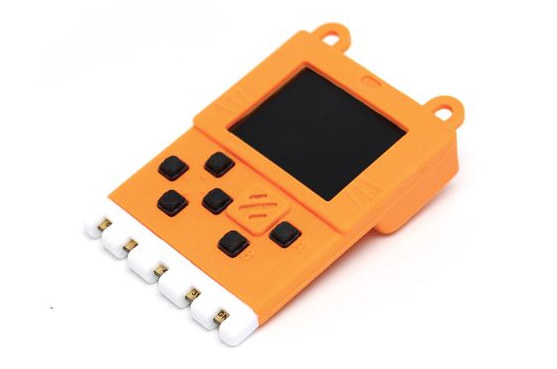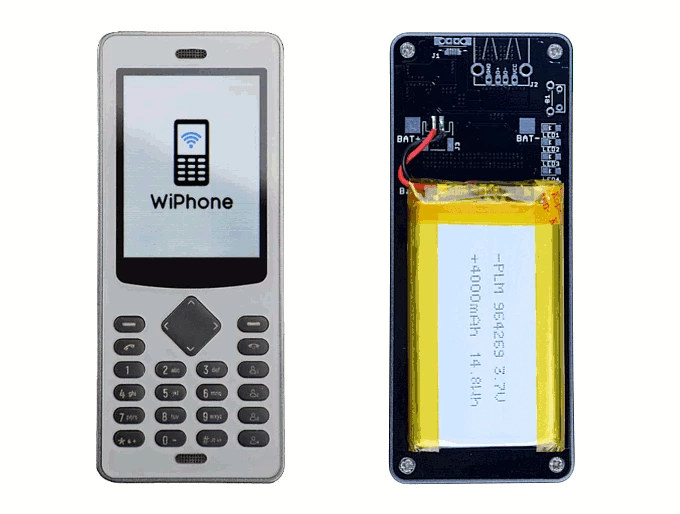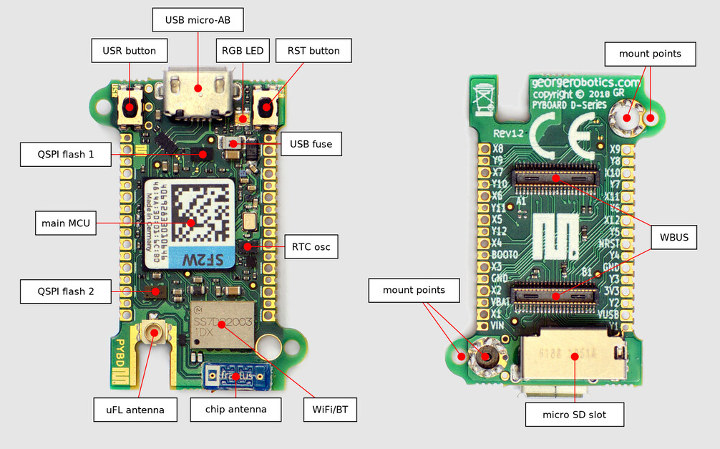When Thomas McKahan had been playing with ESP32 for a while, he found the need to use Raspberry Pi HAT boards and enclosure with his new hardware, so he went ahead and designed his own ESP32 board compatible with Raspberry Pi accessories, and following the smaller Raspberry Pi Model A / 3 Model A+ form factor. Obsidian ESP32 specifications: Wireless module – Espressif Systems ESP32-WROVER-B 802.11 b/g/n WiFi + Bluetooth 4.2 / BLE module with 16 MB flash, 8 MB PSRAM USB – 1x micro USB port for power and programming Audio – 3.5mm TRS audio jack connected to ESP32 DACs Expansion 40-pin GPIO header compatible with popular HAT expansion boards with 3.3 V signalling, I²S for audio DAC, I²C and SPI, Serial UART available on header or via microUSB, I²C GPIO expander with interrupts & address selection 8-pim unpopulated header from remaining I/Os accessible through GPIO expander 5-pin unpopulated […]
Maixduino SBC Combines RISC-V AI, Arduino Form Factor, and ESP32 Wireless Module
Last year RISC-V cores made it into low-cost hardware with neural network and audio accelerator to speed up artificial intelligence workloads at the edge such as object recognition, and speech processing. More precisely, Kendryte K210 dual-core RISC-V processor was found in Sipeed MAIX modules and boards going for $5 and up. Since then a few other variants and kits have been made available including Seeed Studio Grove AI HAT that works connected to a Raspberry Pi or in standalone mode. Seeed Studio has now released another board with Kendryte K210 RISC-V AI processor, but based on Arduino UNO form factor and equipped with an ESP32 module for WiFi and Bluetooth connectivity. Meet Sipeed Maixduino SBC. Sipeed Maixduino specifications: AI Module – Sipeed M1 with Kendryte K210 dual-core RISC-V processor @ 600 MHz, KPU Convolutional Neural Network (CNN) hardware accelerator, APU audio hardware accelerator, 8 MB general purpose SRAM including 5.9MB […]
Low Power TinyPICO ESP32 Board Ships with Micropython (Crowdfunding)
There are so many ESP32 boards available now, so why bother with another ones. Some of the key selling points of TinyPICO are that it is really small at 32 x 18 mm, it’s easy to use out of the box with MicroPython firmware pre-loaded, and supports LiPo batteries with an optimized power path for low-power battery usage. The developer, named Unexpected Maker, also provides various shields for TinyPICO adding a display, sensors, an audio amplifier, an RTC, Grove headers, and more. TinyPICO board specifications: System-in-Package – Espressif Systems ESP32-PICO-D4 SiP with ESP32 dual-core processor operating at 240 MHz, 4 MB SPI flash External System Memory – 4 MB PSRAM Connectivity – 2.4 GHz WiFi 4 802.11b/g/n, Bluetooth 4.2 LE, 3D antenna Expansion – 14x GPIO broken out to standard pitch headers Debugging / Programming – USB + serial/UART for programming Misc – Power (red) & charge (orange) LED’s, APA102 […]
Seeed Studio W600 Certified WiFi Module to Support Arduino, Micropython
Last year, Seeed Studio introduced Air602 WiFi module, a competitor to ESP8266 based on Winner Micro W600 Arm Cortex-M3 microcontroller and selling for $1.90. The module was clearly optimized for cost and size since it offered only a few I/Os, and there was absolutely no mention about FCC or CE certifications. The company has now launched another W600 module, slightly larger to expose more I/Os, and pre-certified to comply with FCC and CE requirements. W600 certified WiFi module is offered standalone, or fitted to “Grove – W600” module for easy connection to Arduino boards. W600 Module Specifications: WiSoC – Winner Micro W600 Arm Cortex-M3 microcontroller with 1MB Flash, RF Transceiver, CMOS PA, BaseBand WiFi Connectivity – 802.11 b/g/n up to 150 Mbps Frequency – 2.4~2.4835 GHz Features – Wi-Fi WMM, WMM-PS, WPA/WPA2, WPS Protocols – TCP, UDP, ICMP, DHCP, DNS, HTTP Access Point and Station modes PCB antenna Expansion – […]
Kittenbot Meowbit Retro Game Console Features BBC Micro:bit Edge Connector
At first glance, Kittenbot Meowbit gaming console looks like a kid’s toy, but it’s bit more than that as its STM32 MCU can be programmed with MakeCode arcade, Scratch3.0 based Kittenblock, or MicroPython, and features the same edge connector as found in BBC Micro:bit board, and as such is compatible with several Micro:bit accessories. Kittenbot Meowbit specifications: MCU – STMicro STM32F401RET6 Arm Cortex M4 micro-controller Storage 2MB SPI flash to store Unicode character table (default) SD card slot to store programs or extend wireless modules Display – 160 x 128 full-color TFT LCD Sensor – Light sensor, temperature sensor, MP6050 gyroscope USB – 1x micro USB port for power and programming Expansion – 40-pin BBC Micro:bit “goldfinger” connector Misc – Charging/work LED, 2x user LED, power switch, reset button, DFU mode button, 4x direction buttons, A/B buttons, buzzer, multiplayer connector (15) Power Supply – 5V via USB, or 3.7~4.2V via […]
WiPhone ESP32 VoIP Phone Targets Makers and Hackers (Crowdfunding)
WiPhone – pronounced as in Wi(reless) Phone – is a tiny VoIP phone made for makers and hardware hackers. The phone is based on ESP32 WiFi + Bluetooth SoC, is designed to be easily disassembled and modified both at the hardware and software level. It looks like an entry-level 2G/3G feature phone, except you can make only make phone calls over WiFi using a SiP account, as there’s no cellular modem. WiPhone specifications: SoC – Espressif ESP32 dual core Tensilica LX6 processor @ 240 MHz System Memory – 4MB PSRAM Storage – 16MB flash, microSD card slot Display – 2.4″ screen with 320×240 resolution Connectivity – 802.11b/g/n WiFi, Bluetooth 4.1 dual mode (BT not yet supported in software) Audio – 3.5mm audio jack USB – 1x micro USB port for charging, serial communication and firmware updates Expansion – 20-pin programmable header on back of phone with UART, SPI, I2C, PWM, […]
Pyboard D-series Wireless Micropython Boards Launched for $56 and Up
We’ve already mentioned the latest Pyboard D-series board at the beginning of February after it was introduced at FOSDEM 2019. The board comes with a powerful STM32F7 Arm Cortex-M7 microcontroller, as well as a WiFi and Bluetooth wireless module. The news is that the board has now launched for £43.80 in.c VAT ($56) and up. A better price comparison with other boards is normally achieved by comparing the ex. VAT price of £36.50 or about $48. That may still feel a bit pricey to some, but there was enough interest to snatch all available “PYBD-SF2-W4F2” boards, and this specific board is out of stock at the time of writing. However, there are multiple variants of the board and PYBD-SF3-W4F2 is still in stock for £58.20 inc. VAT (~$76.5). We’ve now got the full Pyboard D-series “PYBD-SF2-W4F2” specifications: MCU – STMicro STM32F722IEK Arm Cortex M7 microcontroller at 216 MHz with 256KB […]
FOSSASIA 2019 Schedule – March 14-17
As its name implies, FOSSASIA is a Free and Open Source Software event taking place every year in Asia, more specifically in Singapore. I first discovered it last year, and published a virtual FOSSASIA 2018 schedule last year to give an idea about the subjects discussed at the event. It turns out FOSSASIA 2019 is coming really soon, as in tomorrow, so I’m a bit late, but I’ll still had a look at the schedule and made my own for the 4-day event. Thursday – March 14, 2019 10:05 – 10:25 – For Your Eyes Only: Betrusted & the Case for Trusted I/O by Bunnie Huang, CTO Chibitronics Security vulnerabilities are almost a fact of life. This is why system vendors are increasingly relying on physically separate chips to handle sensitive data. Unfortunately, private keys are not the same as your private matters. Exploits on your local device still have […]


